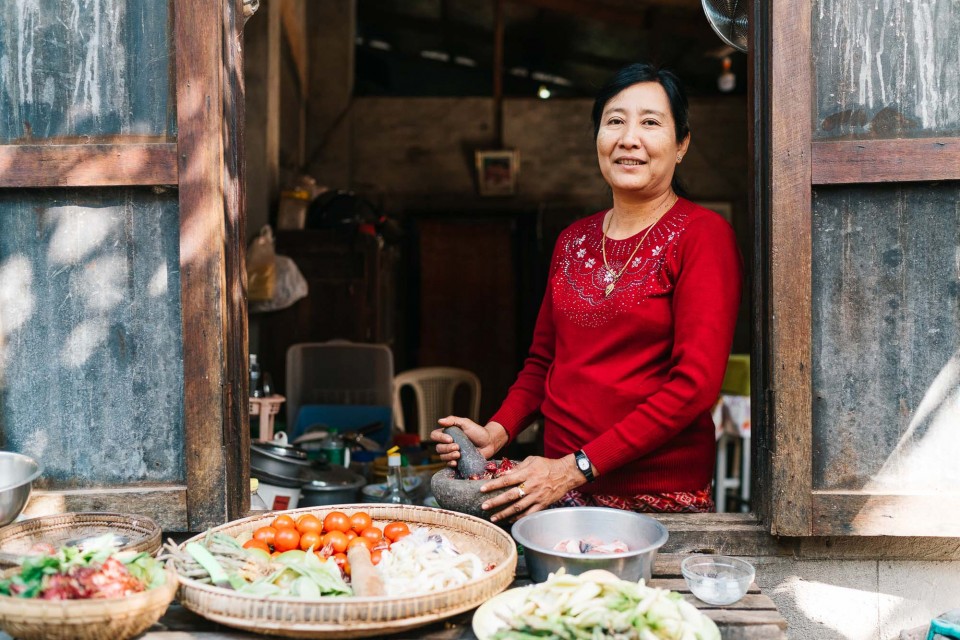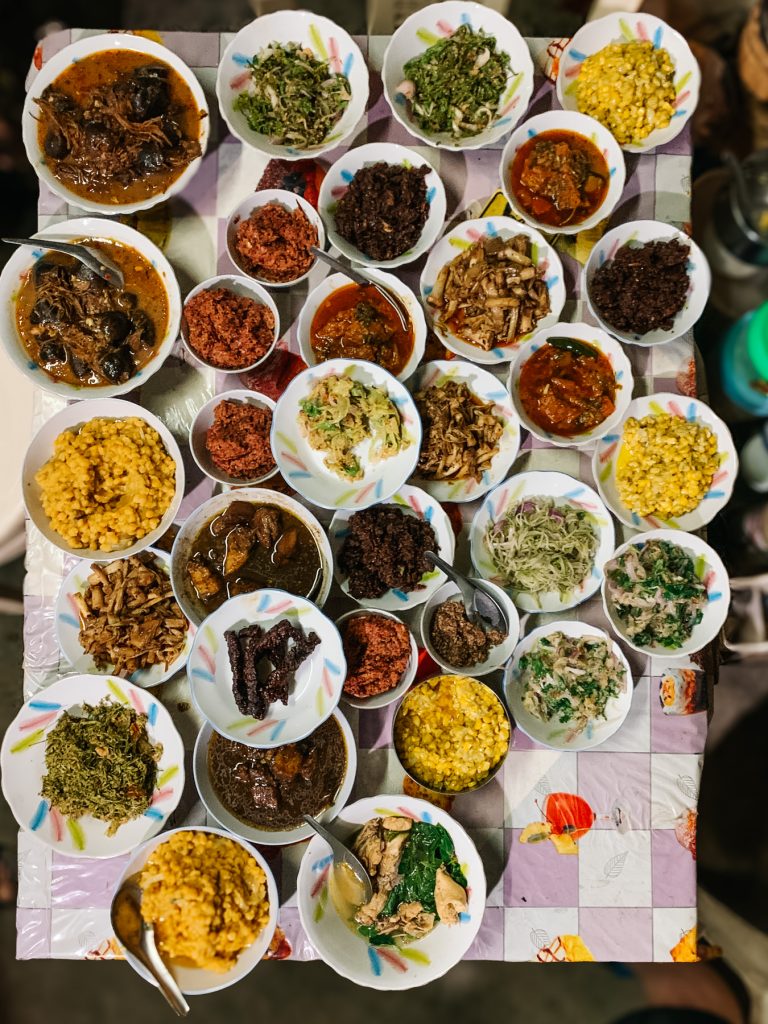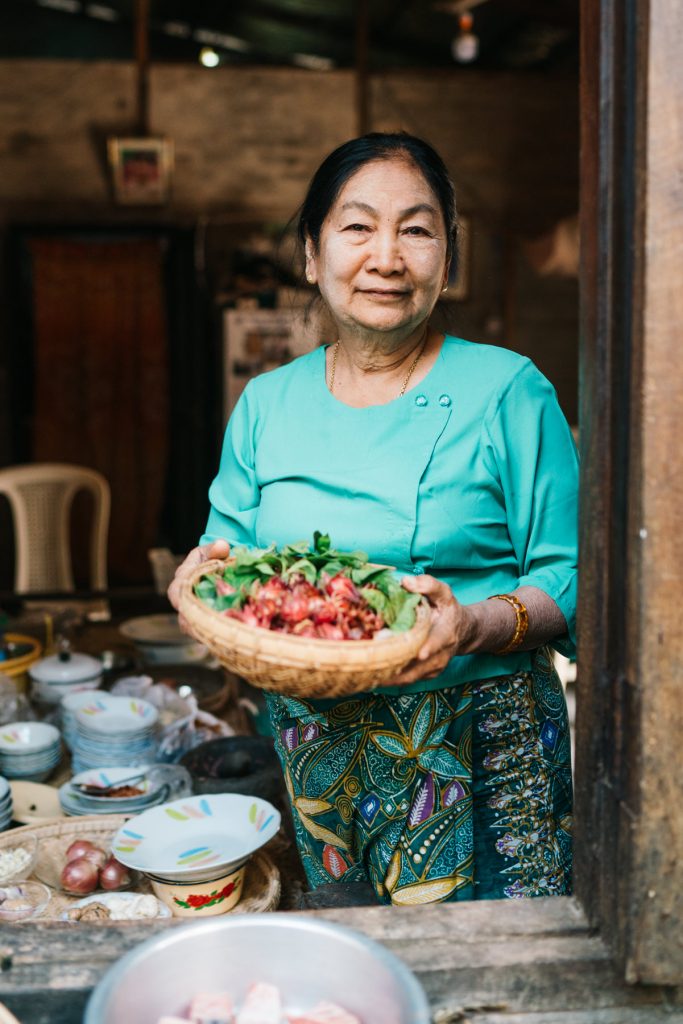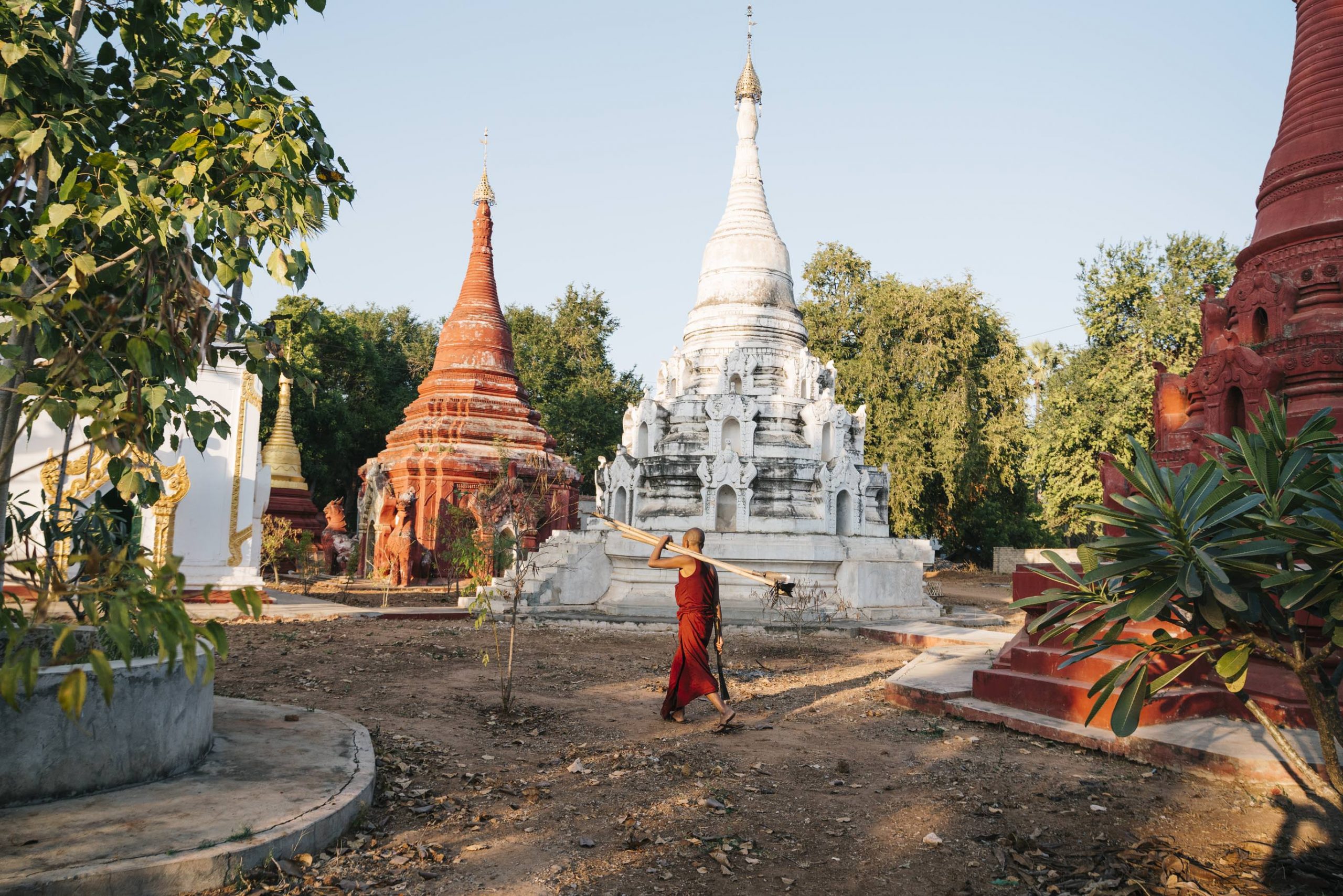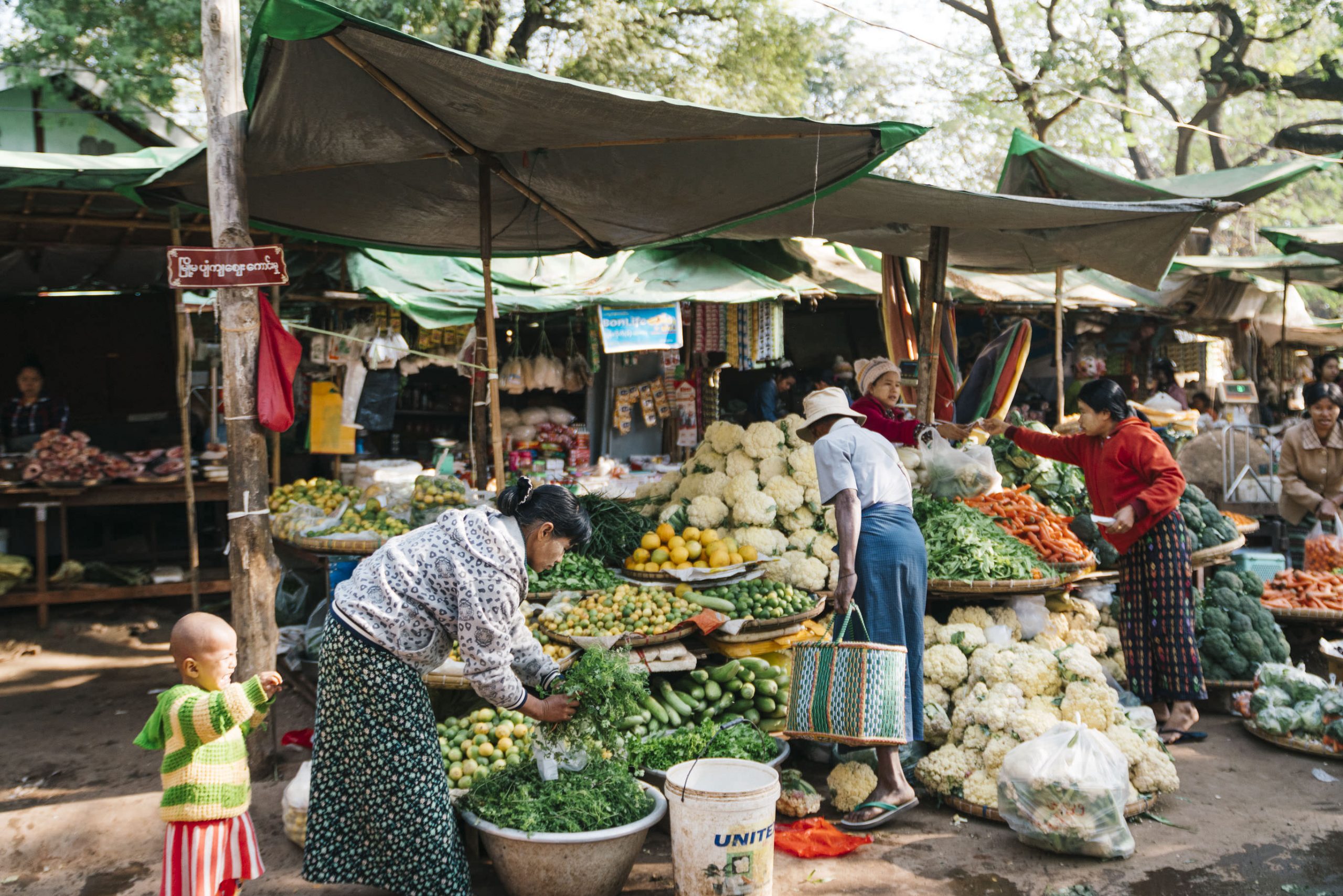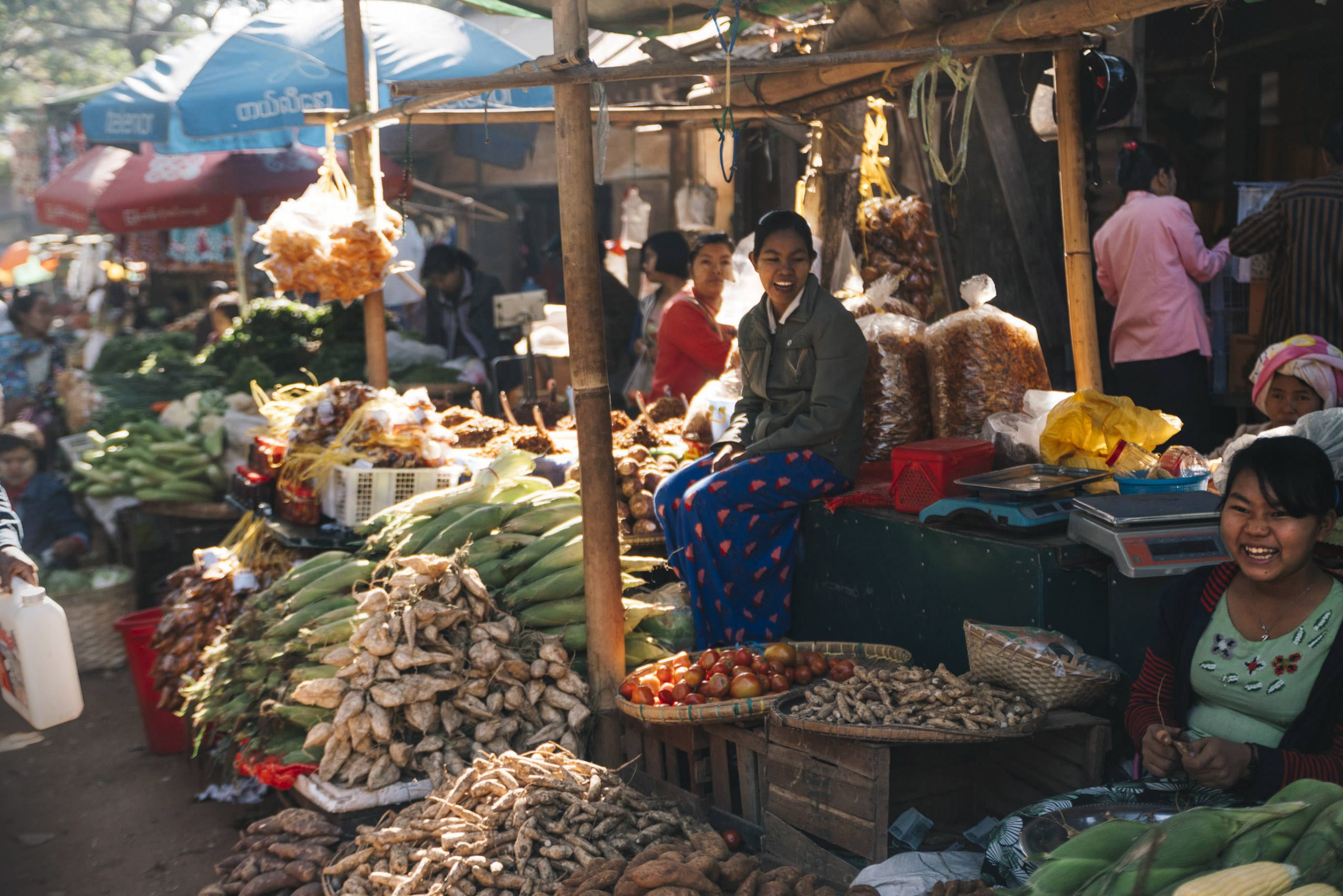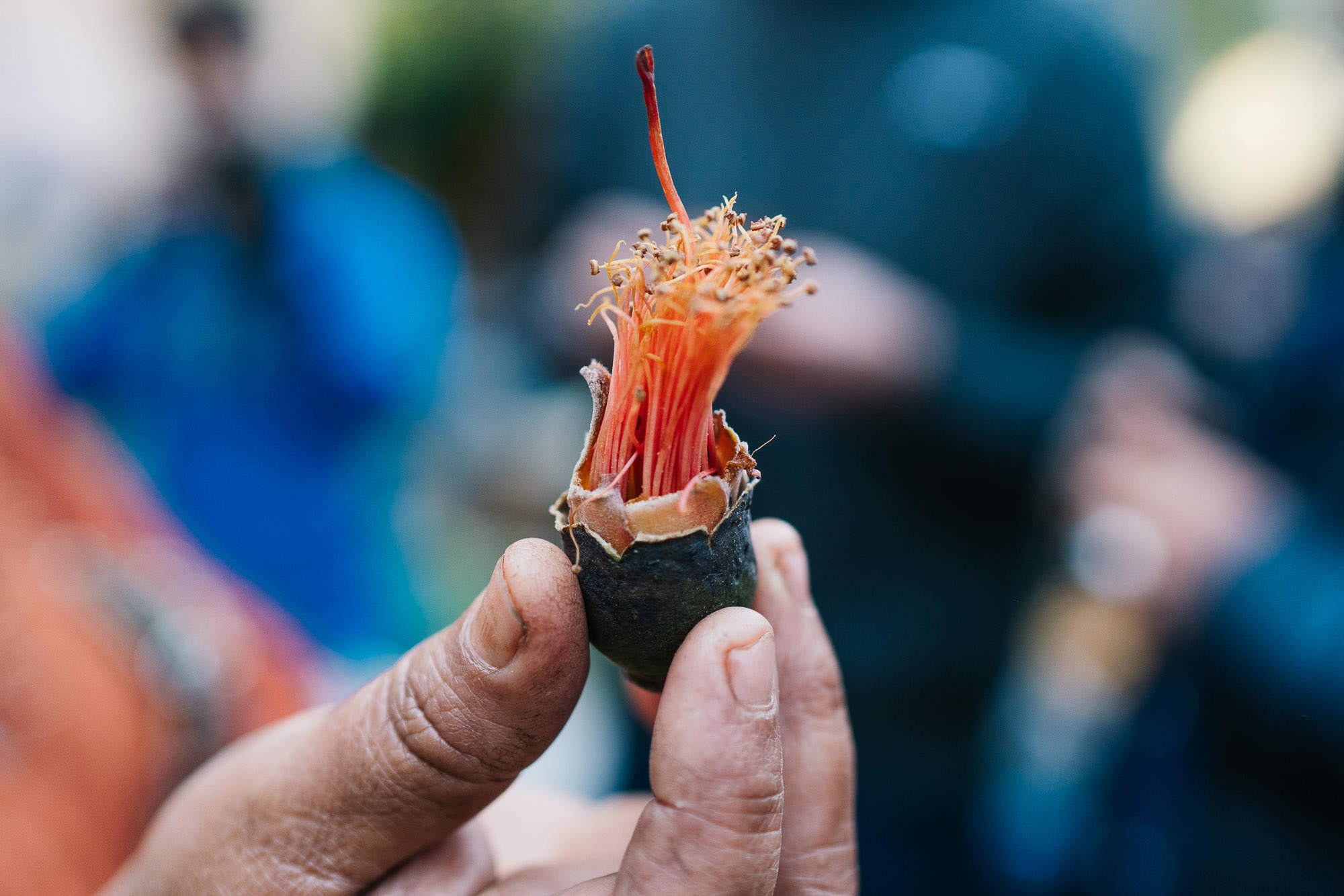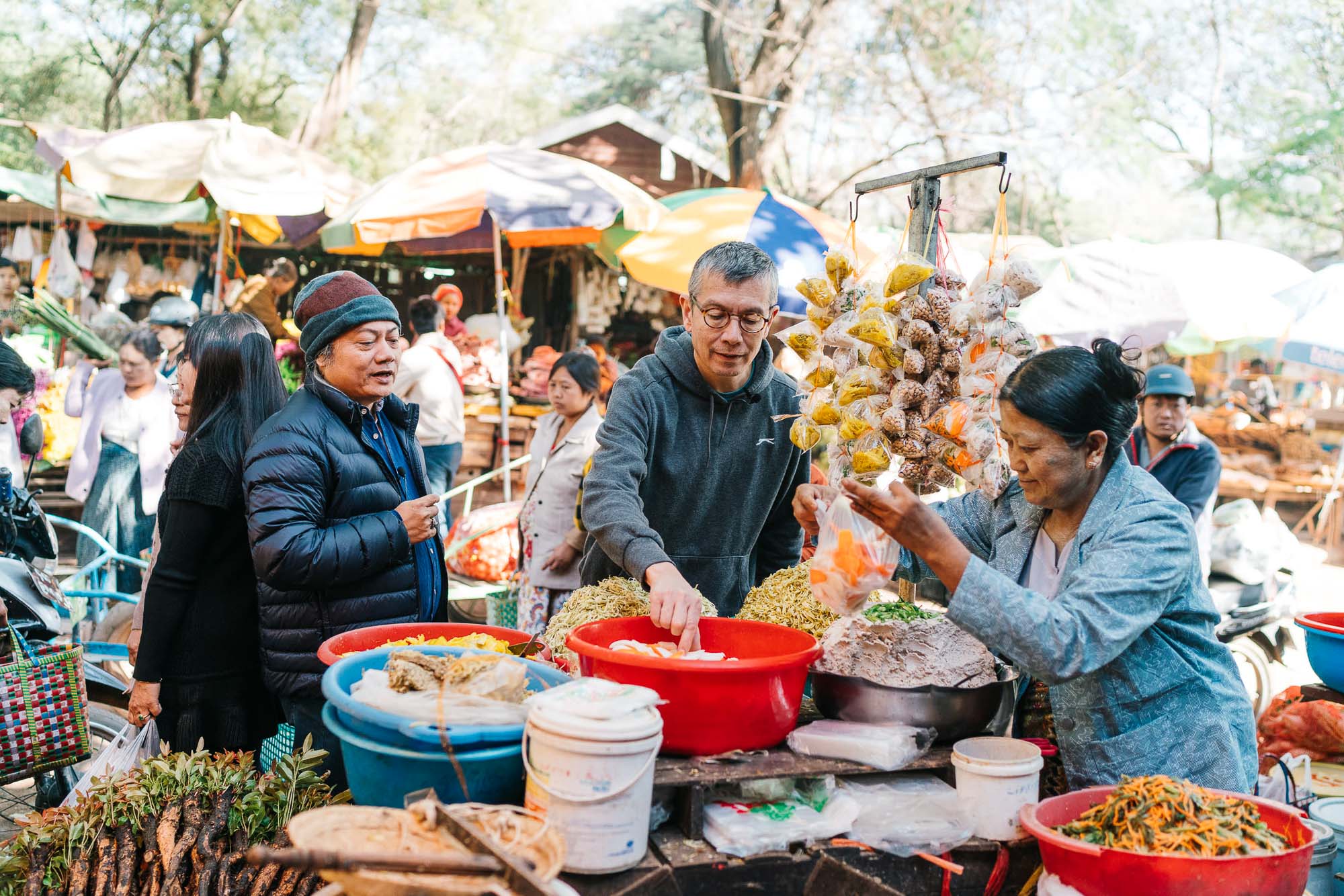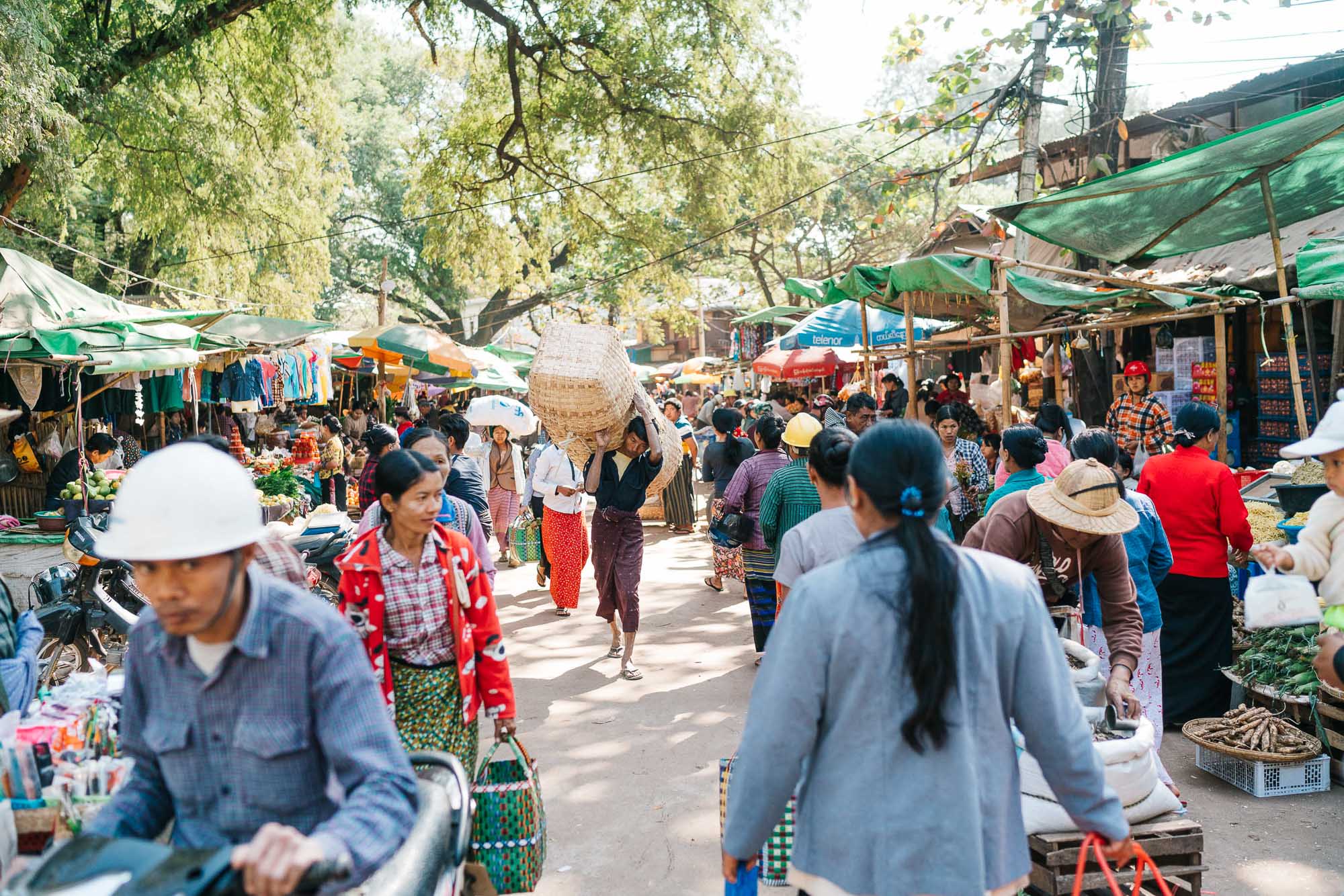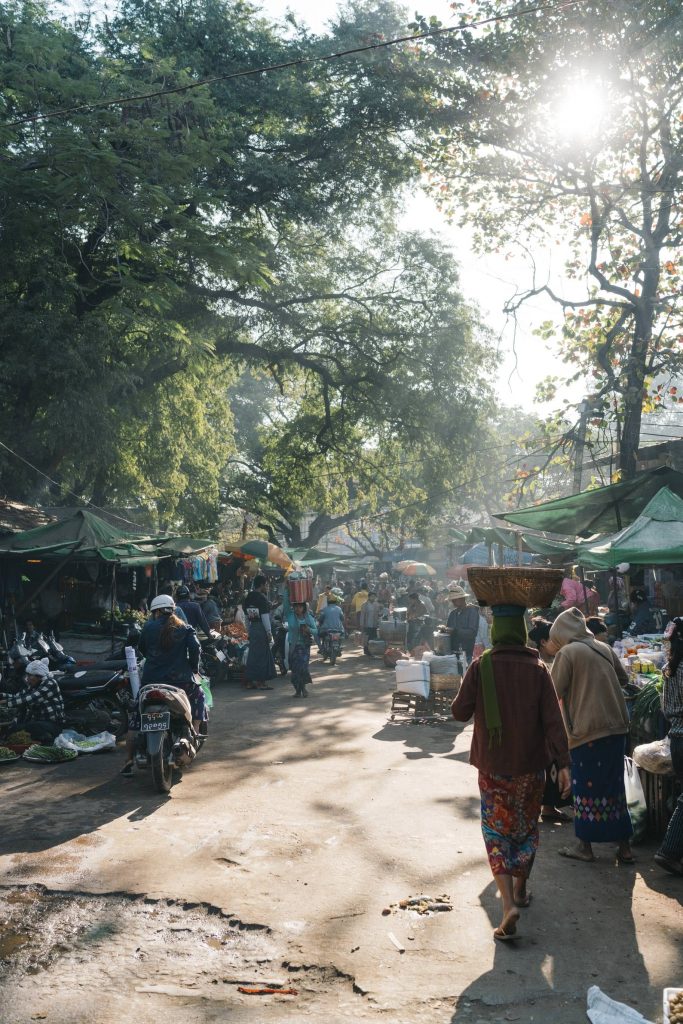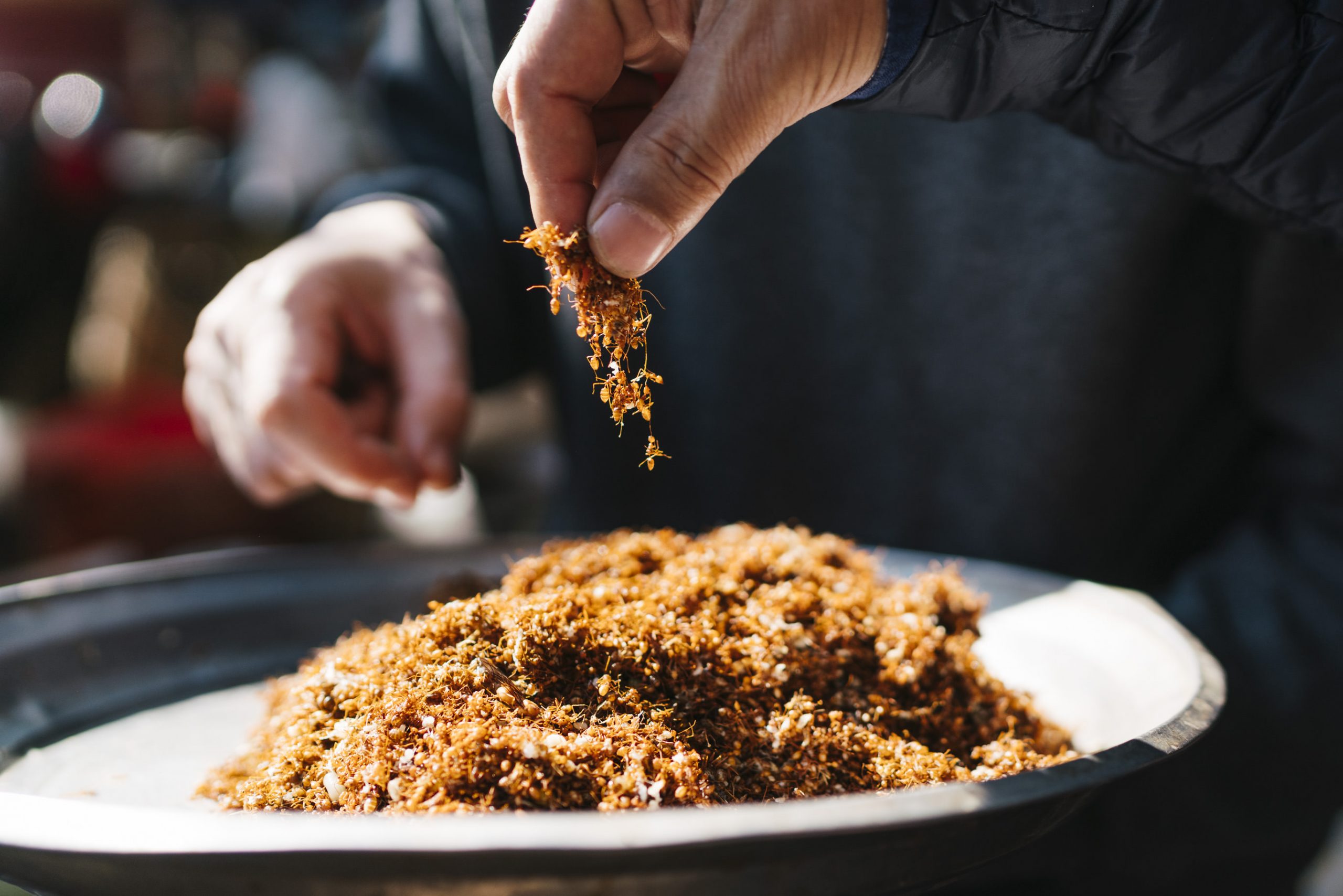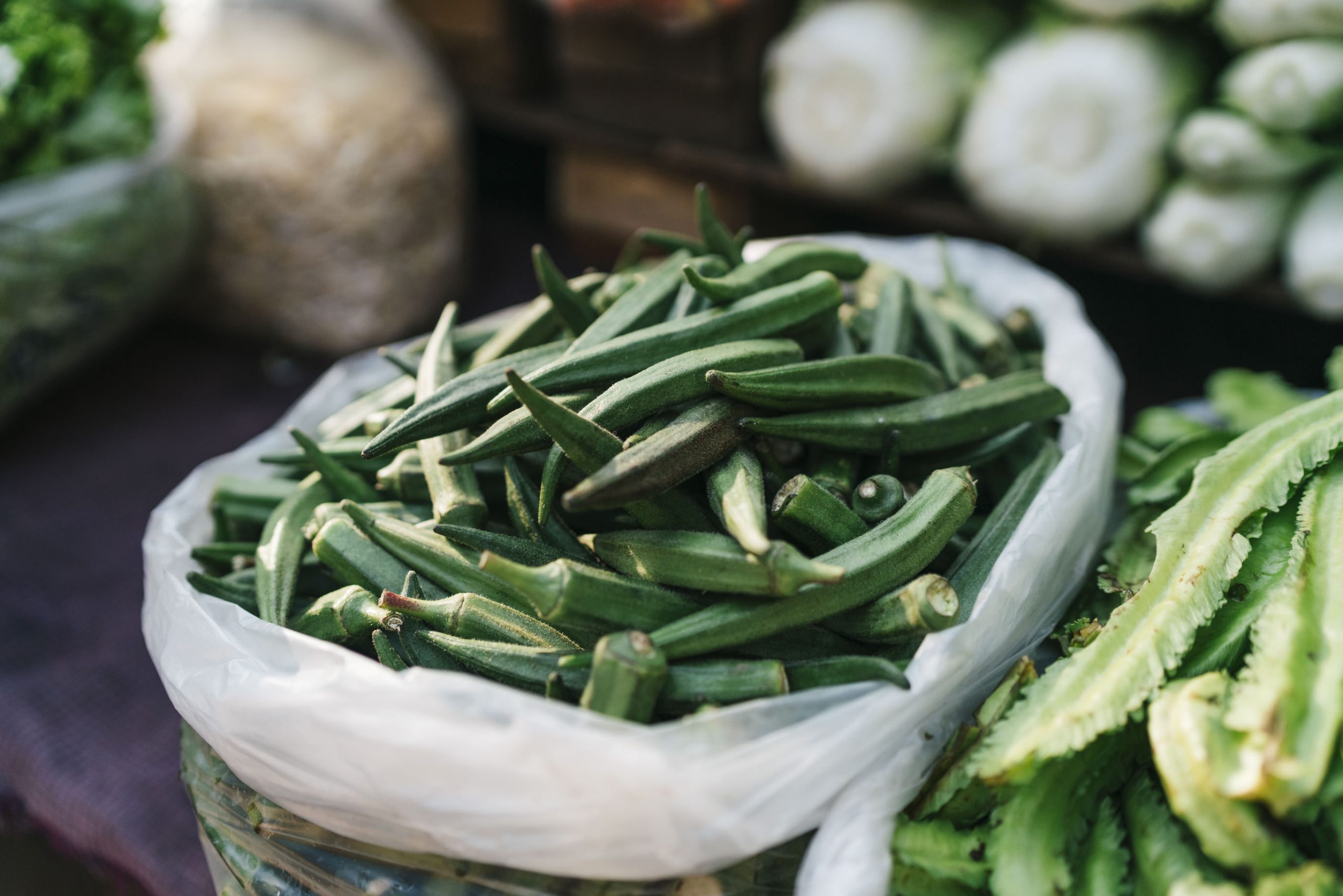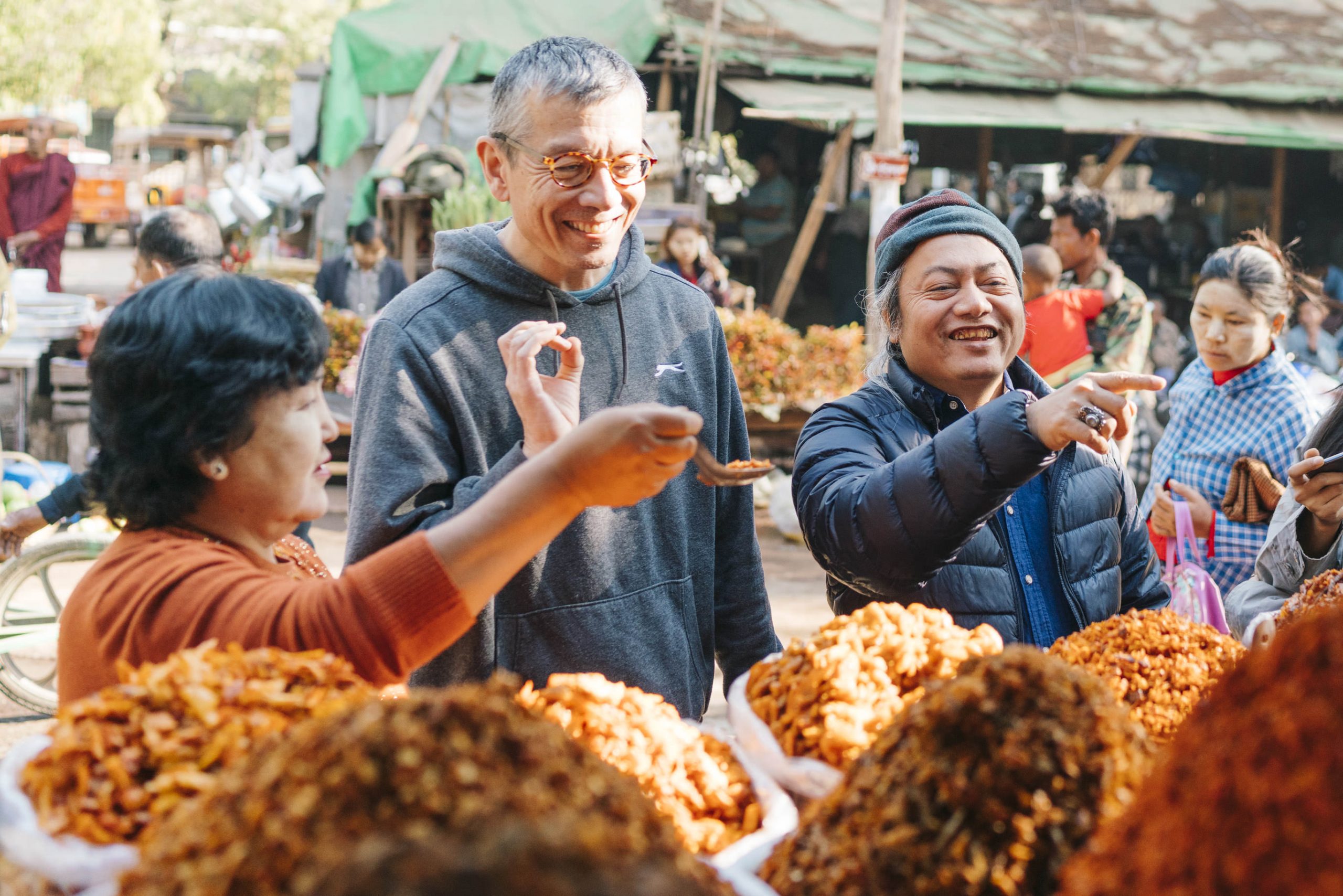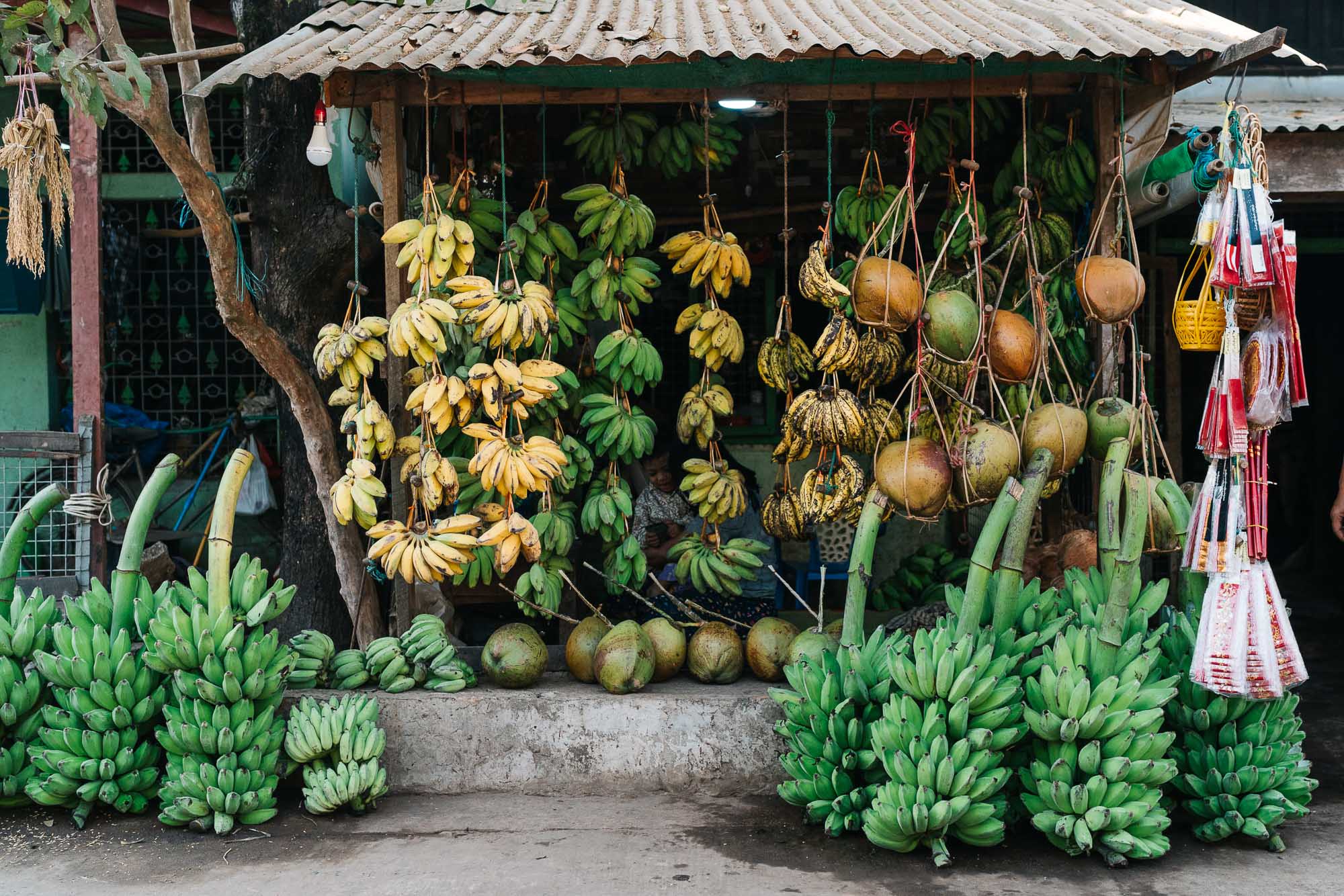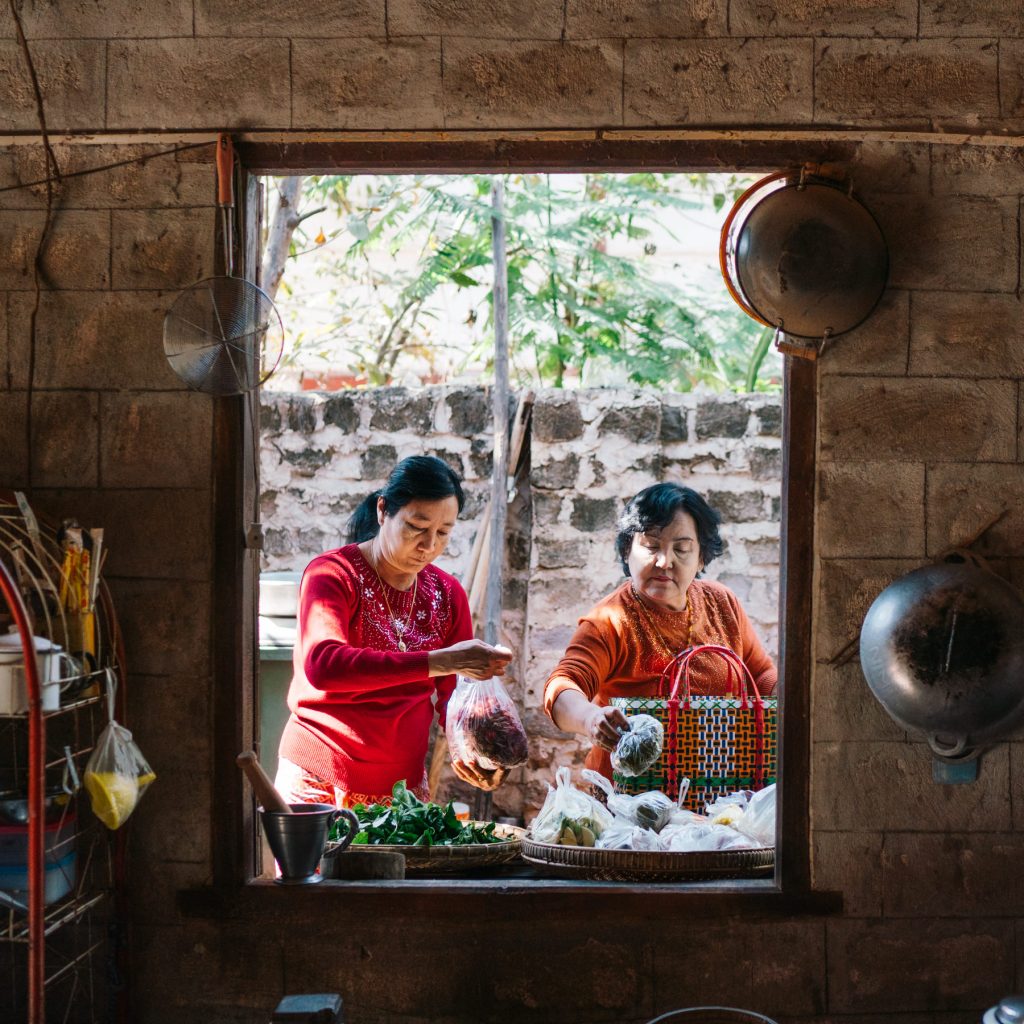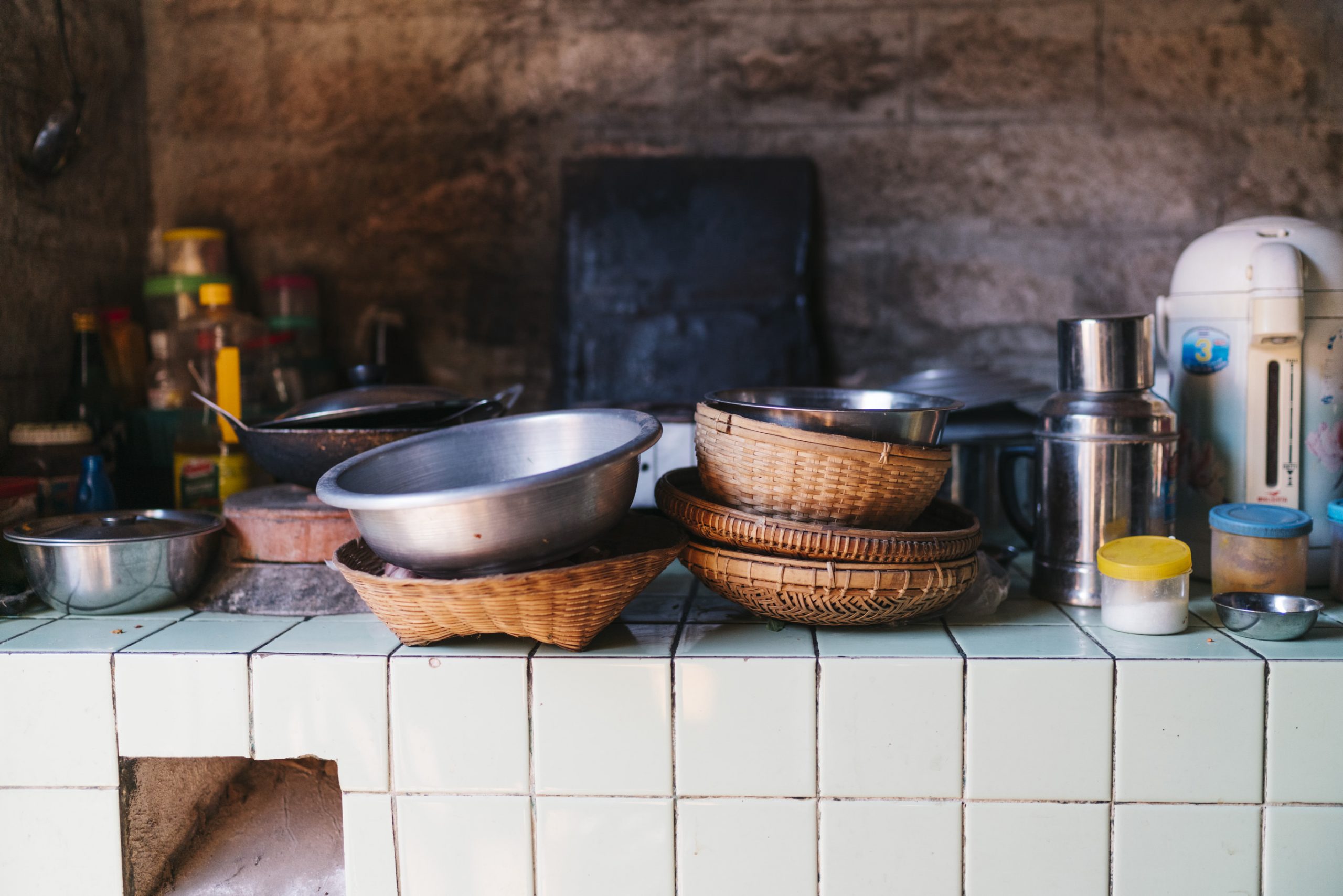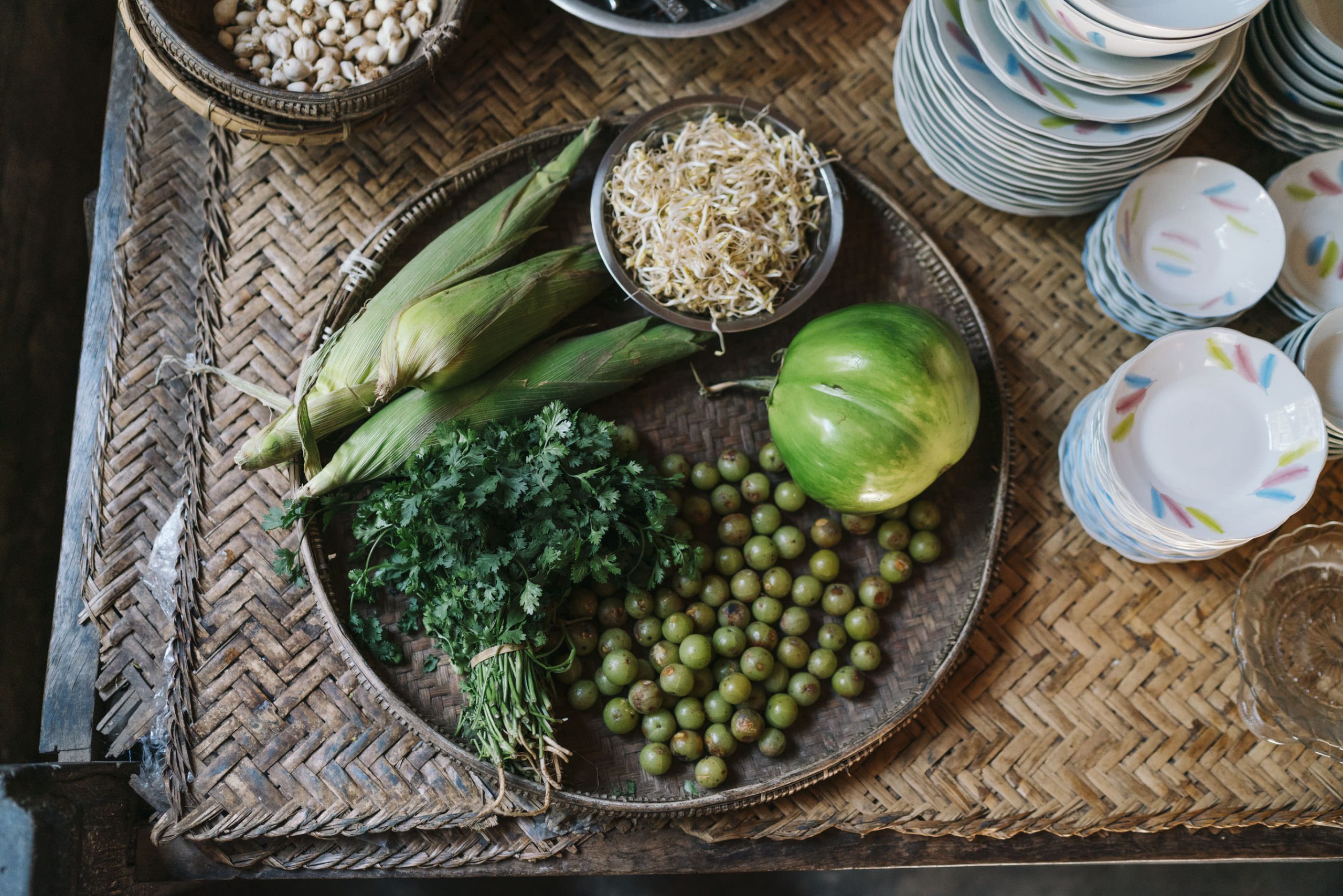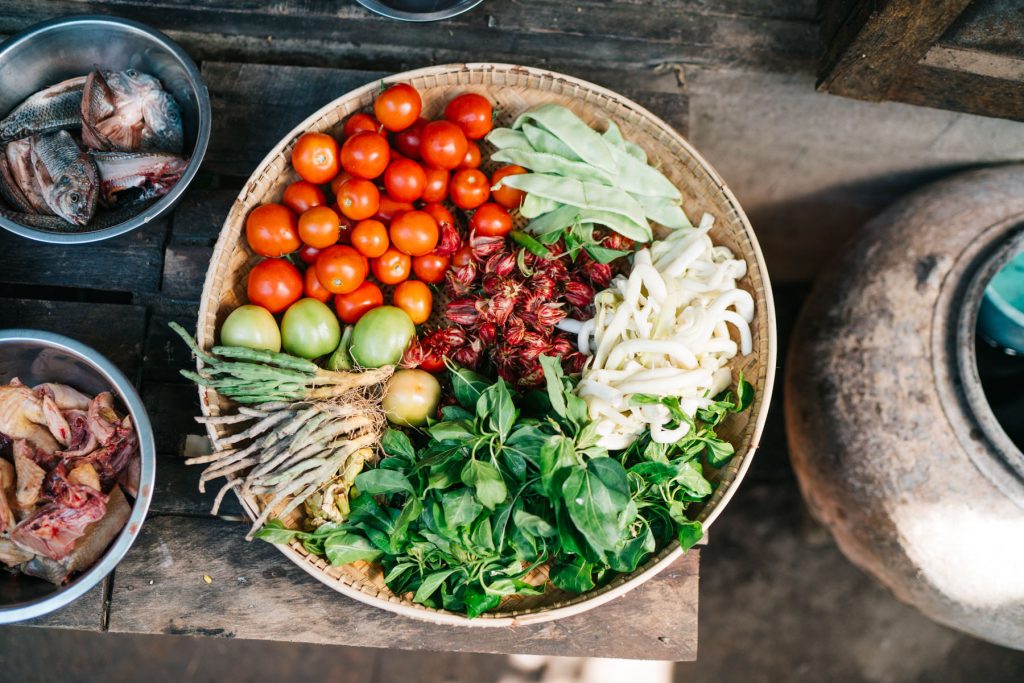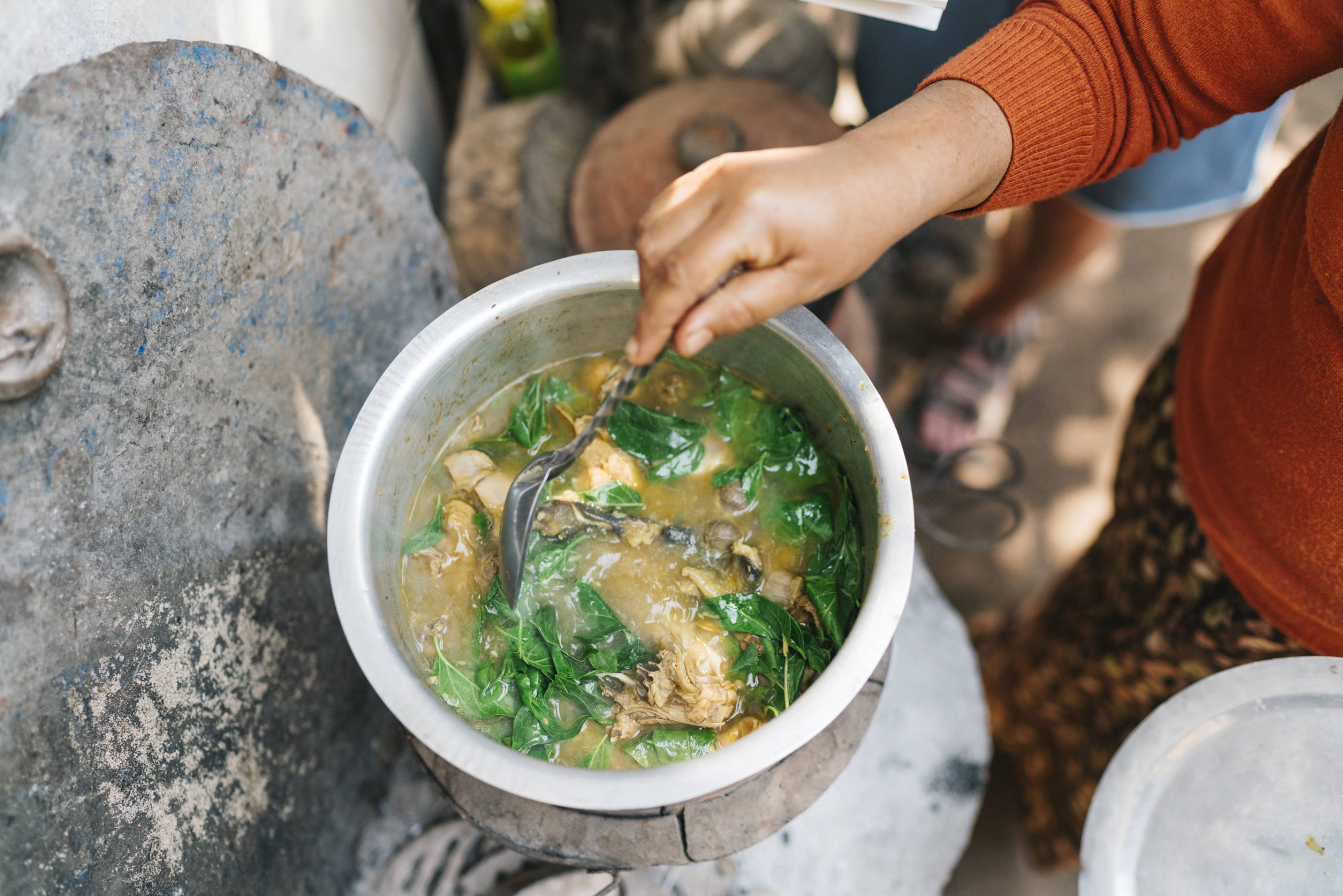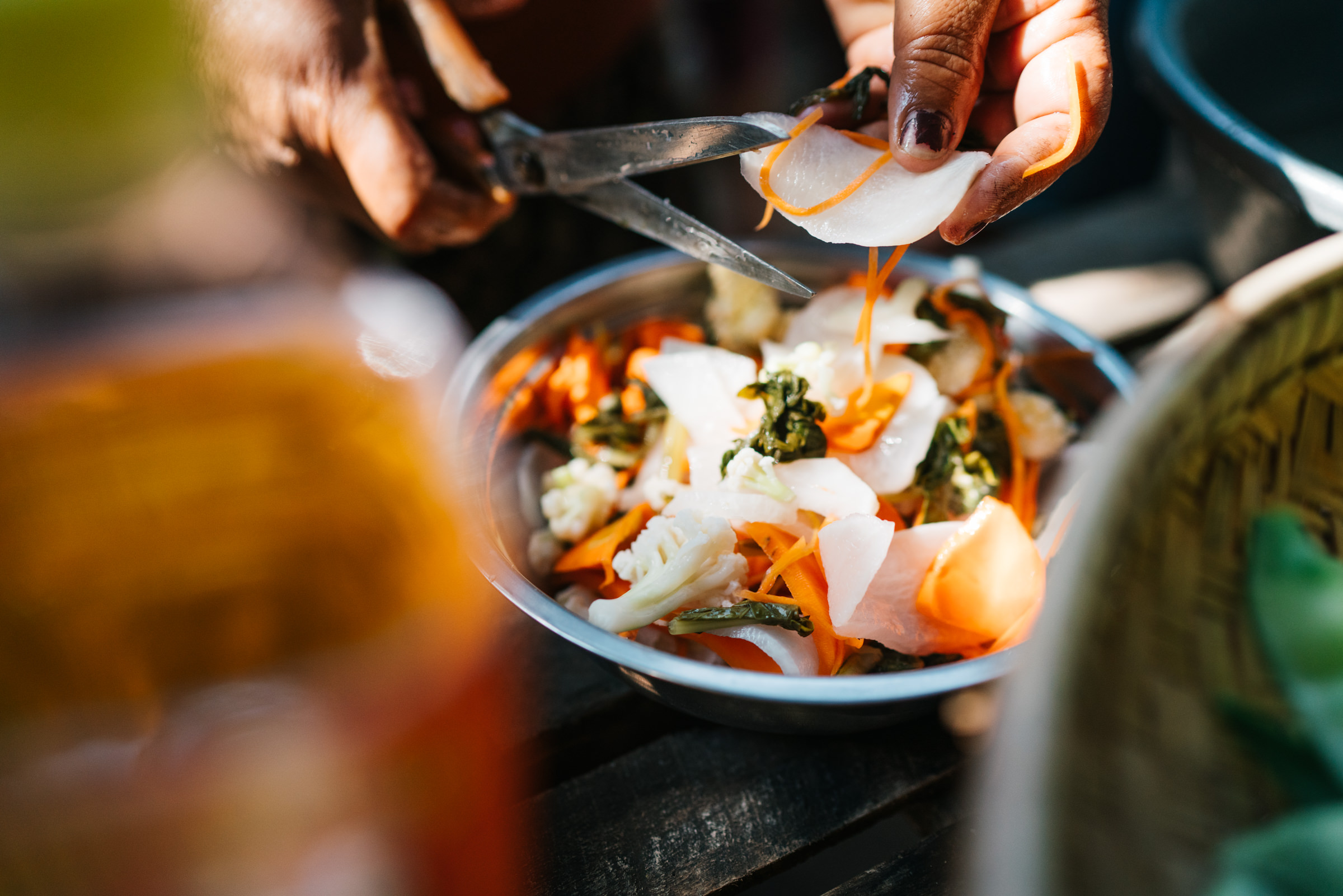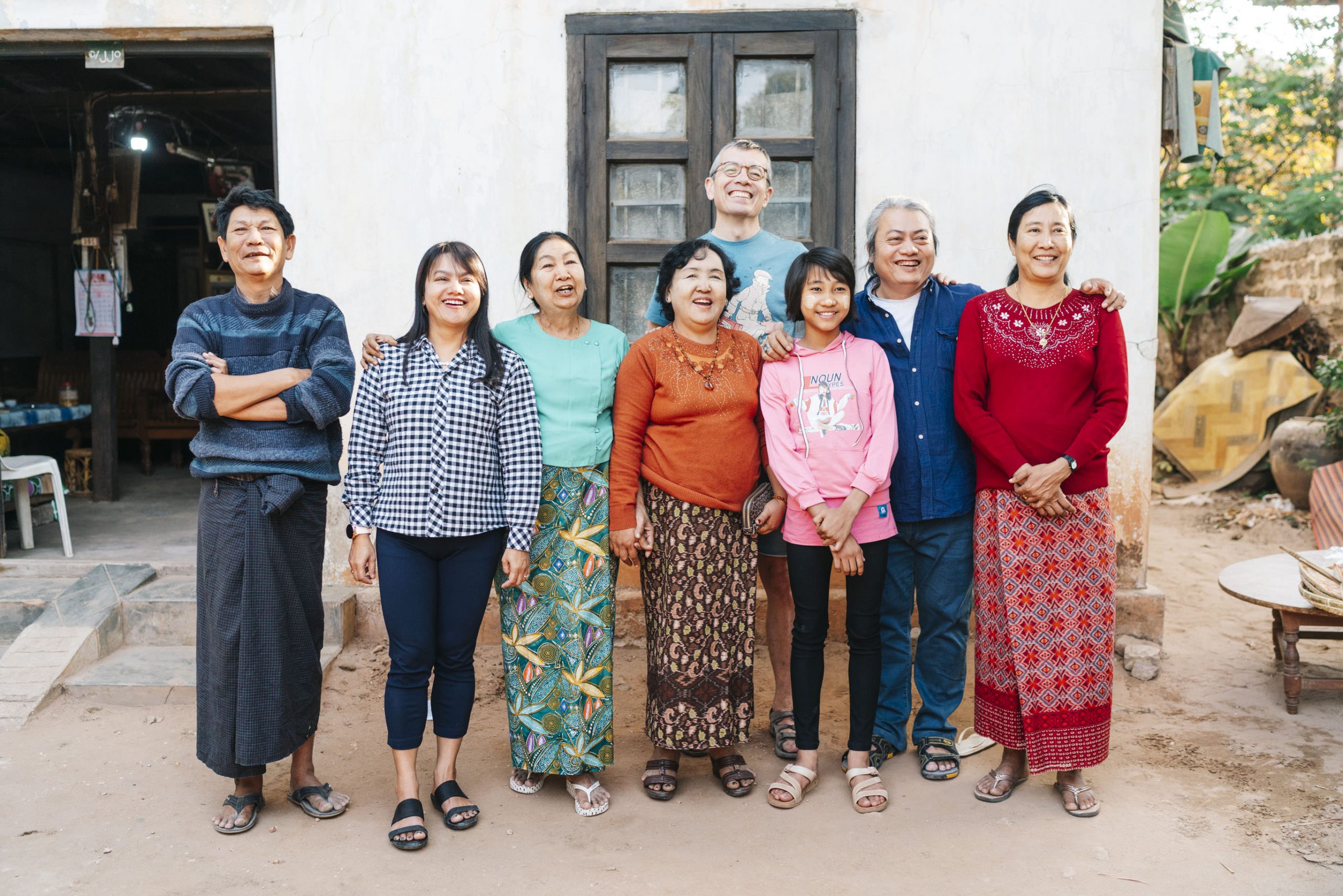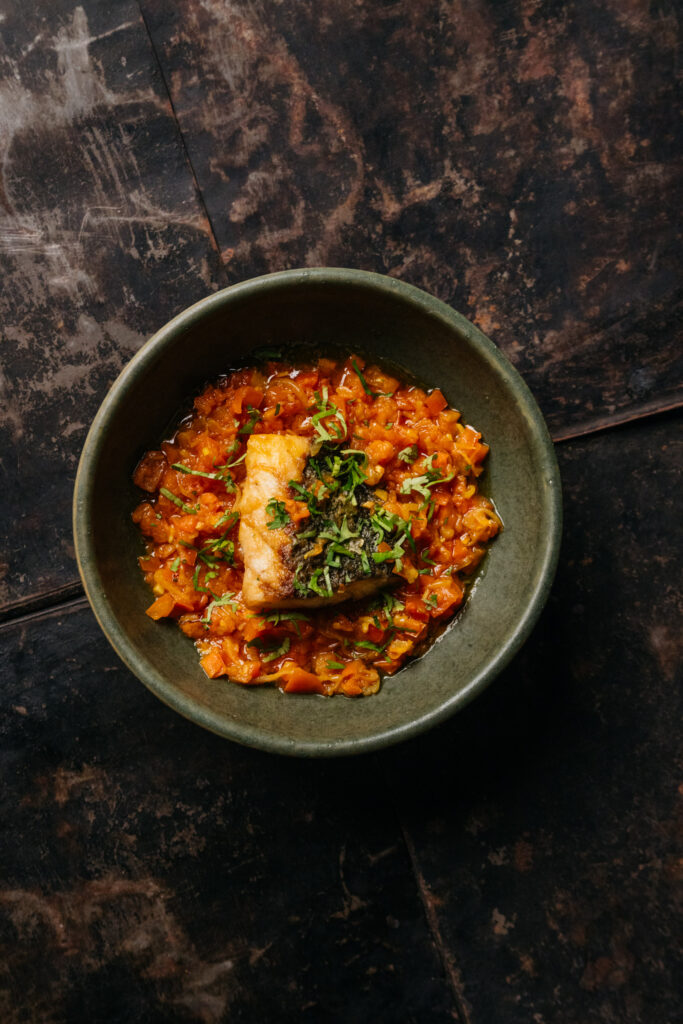Daw Khin Than Myint
Kyaukpadaung
“Daw Khin Than Myint’s kitchen is at the back of a beautiful fenced house in a residential area of Kyaukpadaung. The door to the kitchen opens onto a small patio, and a large window allows in the soft winter light and cool breeze on this pleasant day in Myanmar.”
Kyaukapadaung
Kyaukpadaung is a town in the Mandalay region in central Myanmar. The old colonial name of the country, Burma, comes from this region and the largest ethnic group, the Bamar. We arrived one evening in January 2020, exhausted after our long car journey. We were greeted by the family of our friend and host, Aung Soe, a gallerist, collector, anarchist, chef, composer and, during our trip, our guide and translator. His sister Daw Khin Than Myint invited us to cook with her.
Anxious to make sure that we wouldn’t go hungry, the family had filled the table with local dishes for us to taste: fried cactus, pork with dried mango, flamboyant flowers with ngapi, and, of course, the national dish, lahpet, fermented tea. Lahpet is always used to welcome strangers. It is taken at night-time to keep sleepiness at bay and prolong long dinner-table conversations animated with political discussion and local gossip.
Despite the lahpet, sleep came quickly. We were worn out and had to be up soon after dawn to go to the market to fetch the supplies we needed for our cooking sessions.
Kyaukpadaung market
Kyaukpadaung market is largely open air. The streets were thronging with people searching for the best product at the best price: fermented vegetable stores competing with fresh produce, leaves, flowers, fruit and vegetables grown in the dry land that surrounds the city.
Daw Khin Than Myint
Daw Khin Than Myint’s welcomes us in her kitchen which opens onto a small patio A large window allows in the soft winter light and a cool breeze on this pleasant winter’s day. We leave our shopping on the kitchen table and our host quickly takes control of her territory, emptying the bags and putting everything in its place. Her daughter and her friend Ma San San Oo have come to help so I roll up my sleeves and muck in
No instructions are needed, and we find a way to communicate through the common language of cooking.
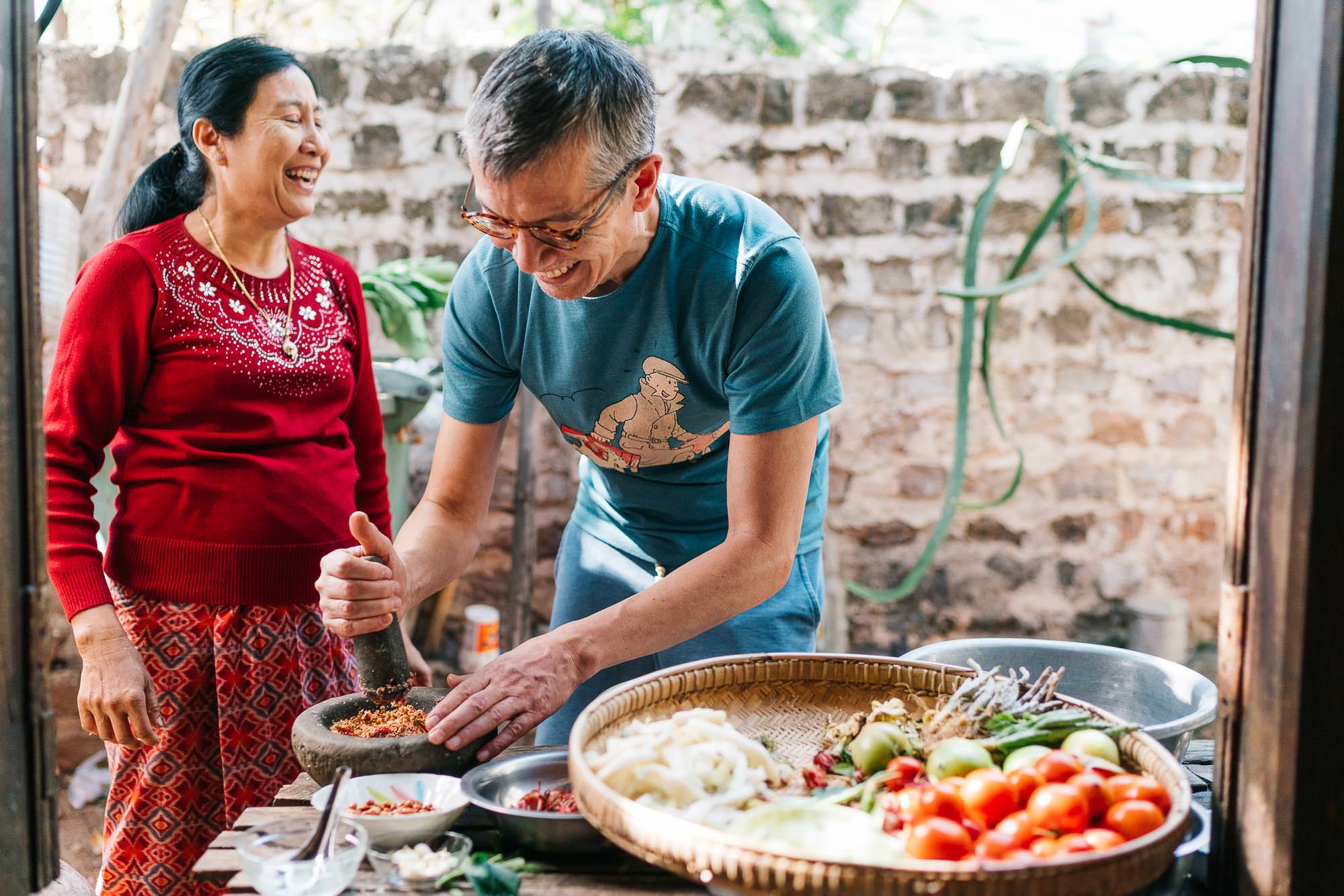

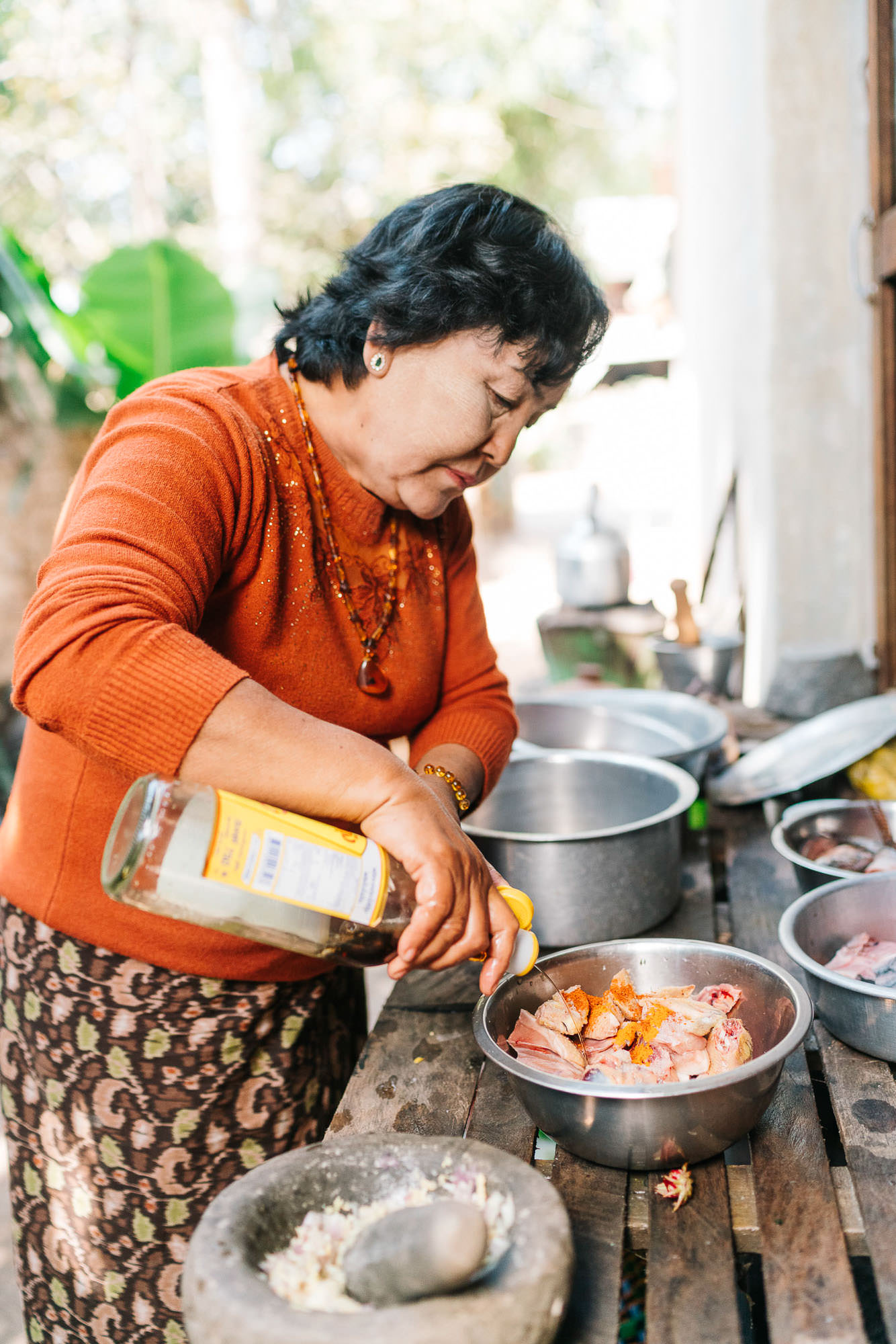
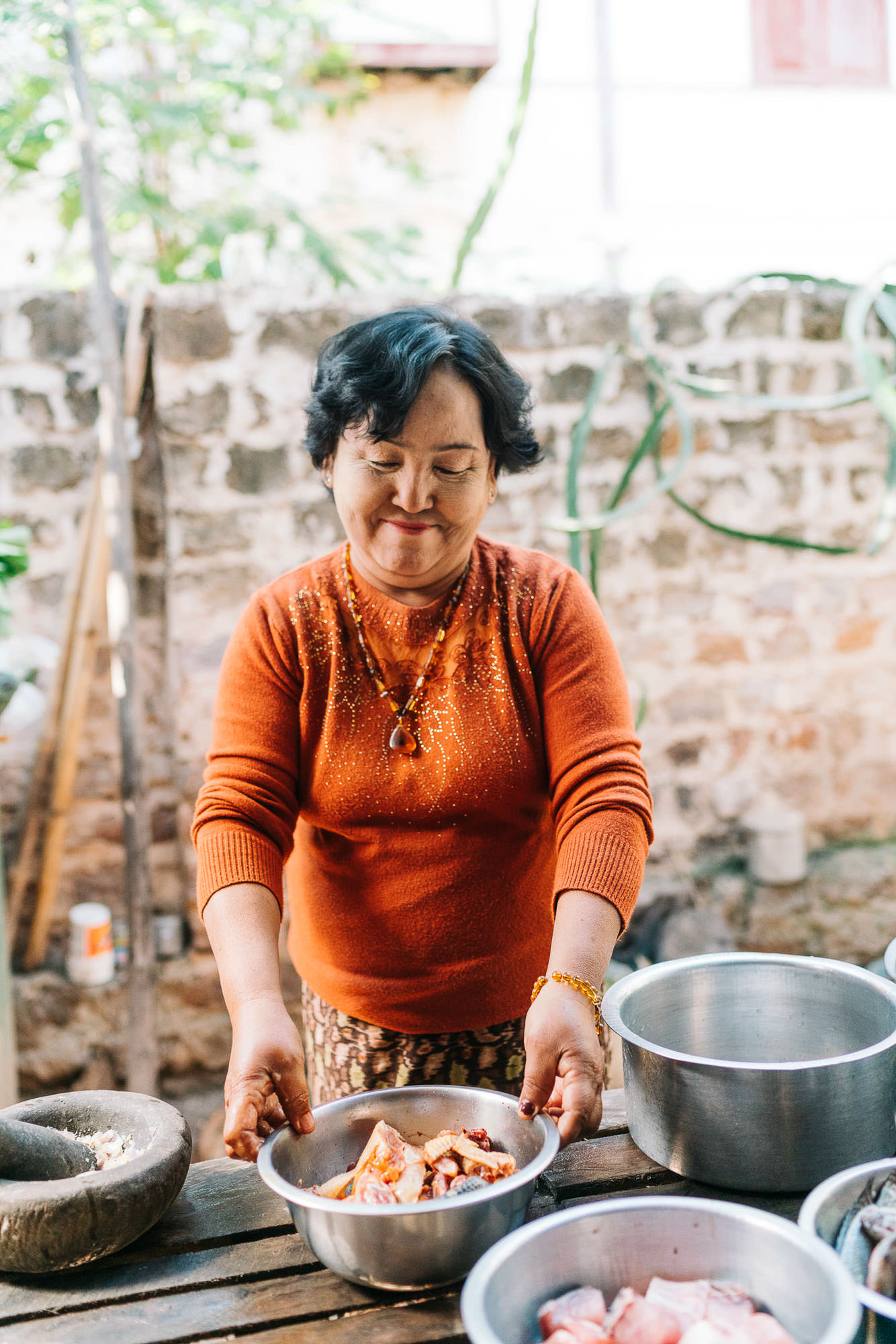
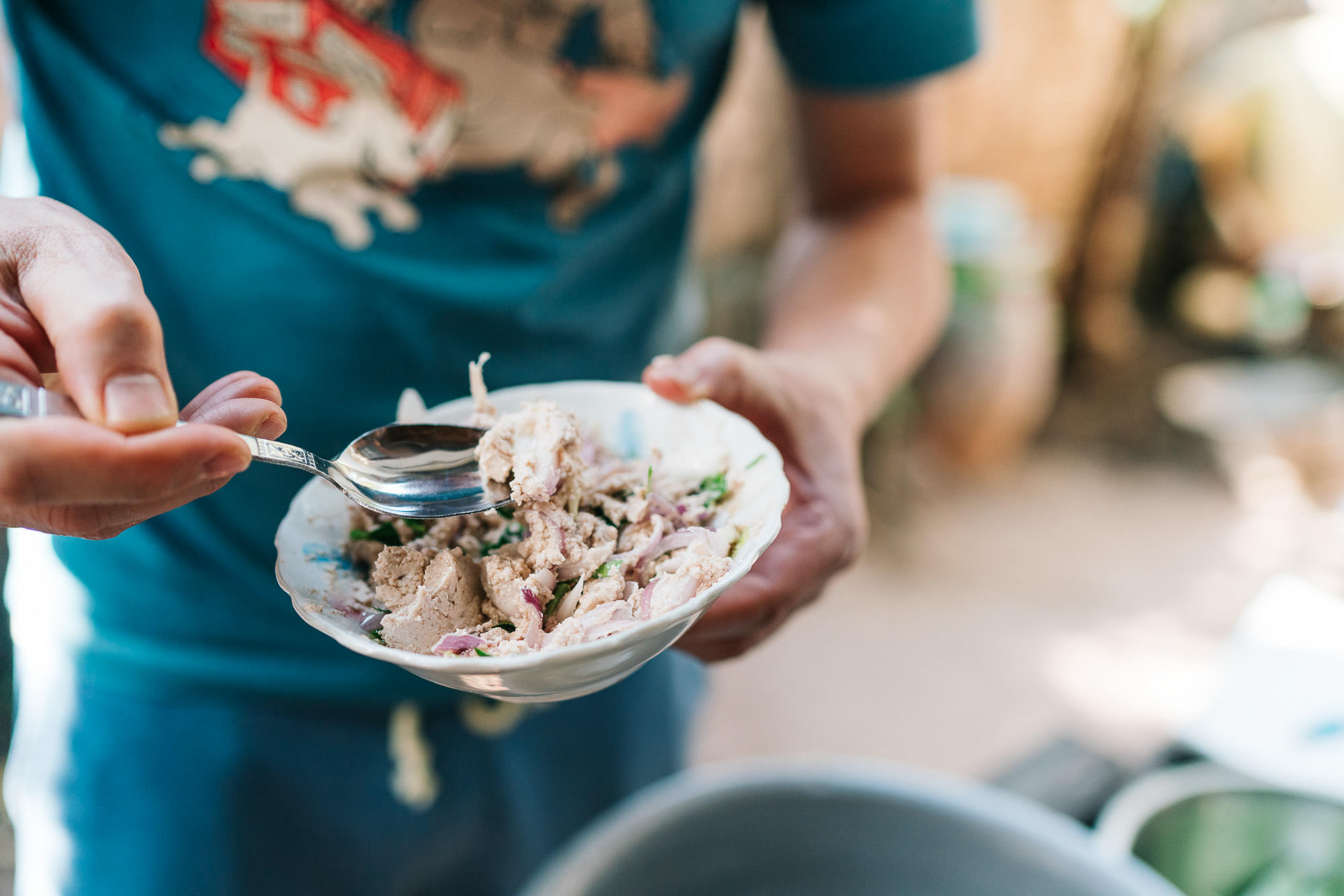
We all sit around a table in the garden to eat the soup, the vegetables with the sesame sauce and two salads: one with roselle leaves and peanuts and another with fermented vegetables, chickpea flour and fried shallots. There is also fried fish with tomato sauce and ngapi. We talk about how two countries as far apart as Lebanon and Myanmar have developed such similar dishes and I think to myself how lucky I am to have had the benefit of this world of flavours.
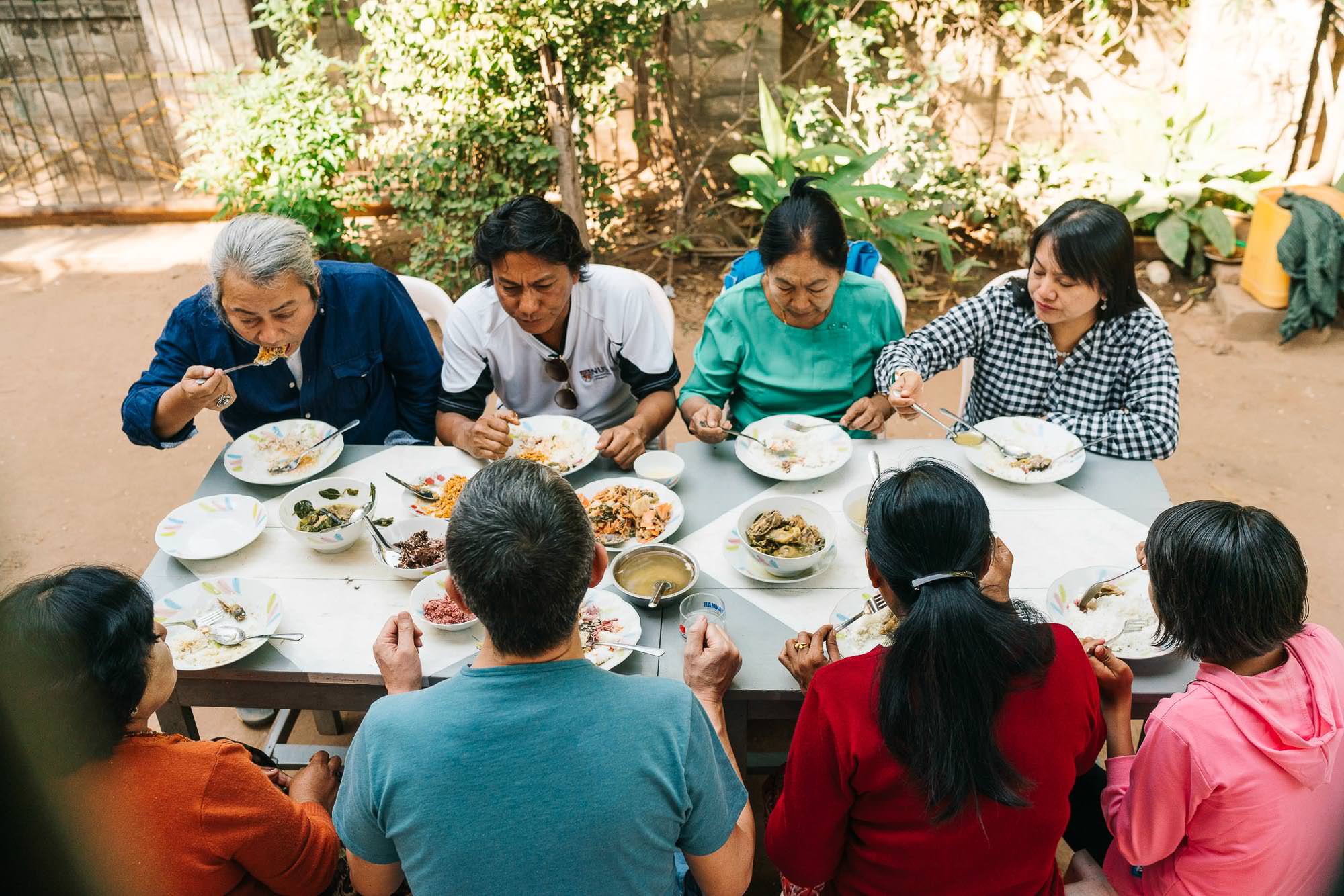
The Ma khin recipe
This tomato-based sauce, gently sautéed with spices and fermented shrimp paste, fits perfectly with the Decolonial philosophy of Ma Khin Café. Tomato sauce accompanies so many dishes across the Mediterranean that it’s easy to forget the origins of its main ingredient. Neither in Italy nor in Spain was it even possible to make such a sauce before the raw material was brought from the Americas.
Today, we continue that journey of discovery—with our food evolving as it incorporates new ingredients from other culinary traditions.
Acknowledgments
We would like to express our sincere gratitude to U Aung Soe Min, Daw Khin Than Myint, Daw San San Oo, Daw Soe Soe Myat, their families and the town of Kyaukpadaung for their warm welcome and friendship.

